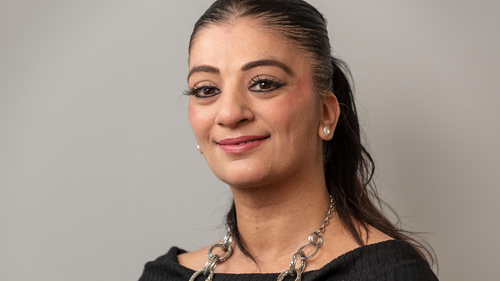Birmingham in 2024: 46% of children in Birmingham are in poverty.

Thank you, Lord Mayor.
I rise to propose this motion alongside my colleague Cllr Izzy Knowles.
Councillors. Upon getting elected, we all had had high hopes about the positive changes we would make as elected representatives.
For so many of us, improving the lives of children in our city would have been among our top priorities,
if not our primary reason,
for seeking election.
I know therefore, as I begin this speech, that I will be speaking to a part of you that is hurt or even angry about the fact that child poverty has risen to such shocking levels in this city.
The problem is not new.
Indeed, back in 2015, a report was written for this council by the Child Poverty Commission about the state of poverty in the city.
At that time, 37% of the children in Birmingham were living in poverty. Manchester was at the bottom of the table, but Birmingham was not far behind.
There were many concerning details in the report, but one in particular, struck me as deeply sad.
Despite their own daily struggles, over half of the parents living in poverty believed that their children would have a worse life than their own.
This prophecy is tragic, because...those parents were right.
Despite a high-profile report and an action plan to reverse the trend, these parents knew then what we can all see now.
That the problem was set to get worse, not better.
Family income has such a huge impact on health, opportunities, likely income levels, mental welfare and even an individual’s lifespan. People born into poverty sadly know from a very early age that their opportunities in life are likely to be reduced.
I found another interesting recommendation in this report, which I will quote now:
“By September 2016, there should be a named Cabinet Member with responsibility for poverty.”
That recommendation, despite being supported by the Labour administration at the time, was never implemented.
Back in 2015, the report described overcrowded homes as an issue too. Children explained first hand that they were struggling to sleep in overcrowded bedrooms.
There was nowhere peaceful to do homework.
They had no privacy.
And, they were unable to invite friends' round.
These were common concerns.
Fast forward nine years and the situation is now much worse.
There are around ten thousand children living with families in temporary accommodation.
Whole families share one bedroom in B&B’s, with no table, no cooking facilities and no privacy at all. Too often, children are placed far away from friends, family, schools and other support networks.
This is one of the many reasons why Liberal Democrats are fighting so hard to save libraries.
The example of children having to move far away from the place they call home, into TA, brings home the importance of libraries as a free space that children can go to.
A space that gives you that feeling of comfort, normality and belonging, no matter where you are.
The early years set the blueprint for that person’s whole life. This council cannot fail these children.
We have got to get children into libraries again.
Reading, relaxing and learning.
There has to be a welcoming space where children can do homework, enjoy free books, warmth, the company of other children and a place to escape the cramped reality of poverty in Birmingham in 2024.
According to the Joseph Rowntree foundation, Birmingham now has the worst child poverty record, with 46% of Birmingham’s children in poverty; a number that is over double the national average.
We have put forward a motion today that is completely achievable. It doesn’t fix all the causes of child poverty because the sad reality is that this council cannot afford to fix the problems. We must, however, make as much noise as we can on behalf of our city so that we call in help from the Government, and we must do what we can locally to make positive changes.
One of those changes is to commit to ensuring that children live by their school when they are put into temporary accommodation, unless there is a good reason for that not to happen such as escaping a violent situation. Where possible, children in TA should be either one bus ride, or a sensible walking distance from their school. This should be a key measure that the council monitors.
Having a child poverty commissioner is something that we must do.
This council has got a climate emergency, a road safety emergency and a housing emergency. We could easily seek to add a child poverty emergency to that list, but it wouldn’t make any difference to the outcome.
What we need is a radical move; someone whose job it is to cut through the bureaucracy and barriers to make tangible improvements that benefit children.
An example, which you will have heard about often, is Perry Park.
As many of you will know, Cllr Hunt and I have had to campaign hard for years to get the park restored and given back to the community. Thanks to Covid and the commonwealth games, many children in Perry Barr have grown up without a park.
The antidote to overcrowding at home.
A child poverty commissioner or similar could make sure that barriers are removed so that these services are restored where possible.
They could also ensure that we are being represented fairly at Government level.
A commissioner could lobby for funding for free school meals, breakfast clubs and all sorts of projects that will help children in poverty.
Finally, I look forward to a positive debate today and I encourage all my colleagues to think carefully about what can be done, not what can’t be done.
Thank you, Lord Mayor.
